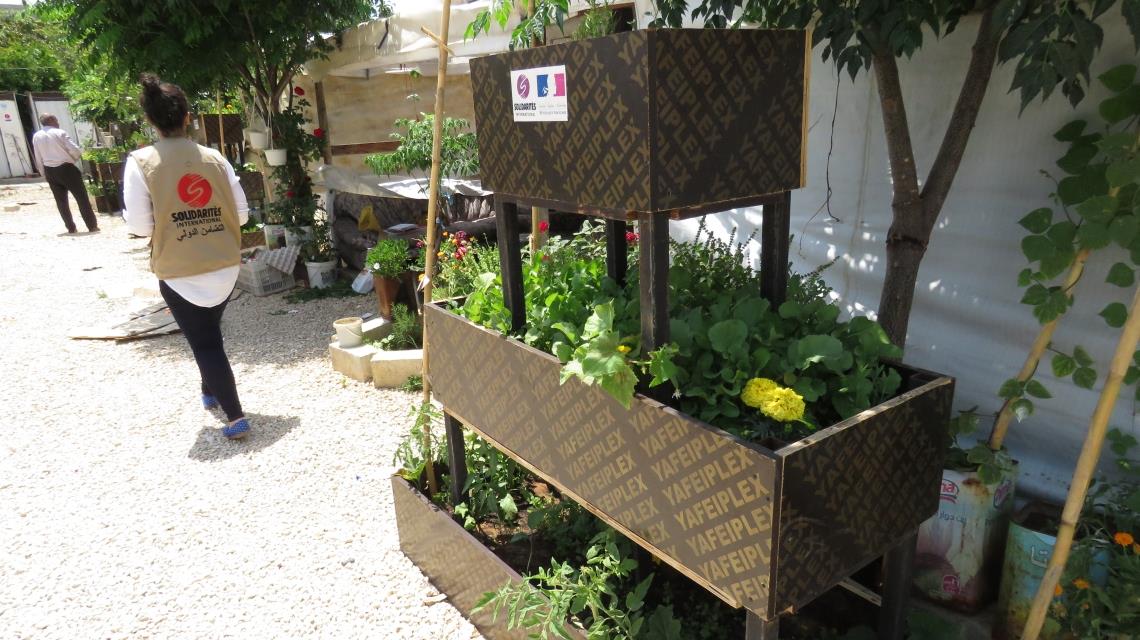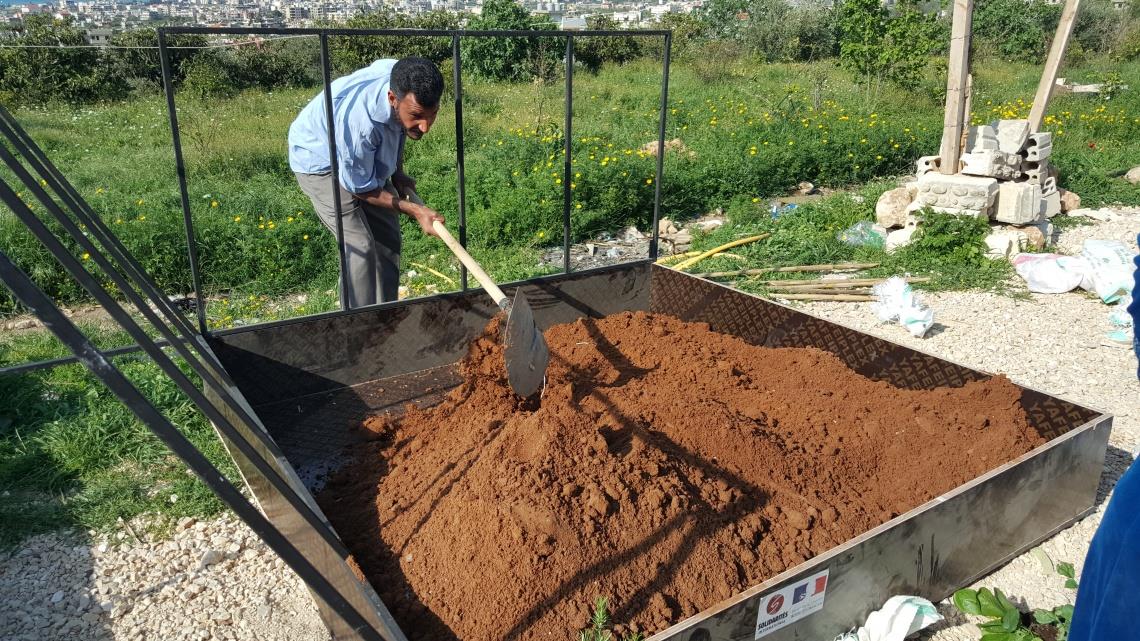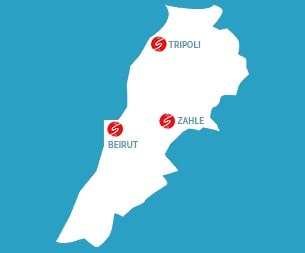Striving for a better tomorrow, Syrian widows in Lebanon harvest much more than vegetables from their communal garden.
Forced to leave their homeland and loved ones behind, 30 widowed women left war torn Syria with their children, and at last found refuge at a charity residential compound in Abu Samra, North Lebanon. They first benefited from a roof and assistance, contributing to safeguard their dignity. Yet, limited income, financial strain, and exploitation attempts outside the compound all daily occurrences in Lebanon, added to the huge burden of raising their children, alone in a foreign country.
The recent Vulnerability Assessment of Syrian Refugees in Lebanon revealed that 93% of Syrian refugees have some degree of food insecurity. 75% of them are relying on less sustainable income sources such as charity, debt, food vouchers, and child labor. As a response, SOLIDARITÉS INTERNATIONAL designed and implemented a micro-gardening pilot project, targeting 505 families in urban, semi-urban, and informal settlement contexts, in the areas of Minnieh, Denniye, Zgharta and Tripoli.

Lebanon
Context and action- 5.6 million inhabitants
- 112th out of 191 countries on the Human Development Index
- 122.148 people helped
Improving food security
The gardens are aimed at reducing the financial burden linked to the purchase of fresh food, improving the quality and diversity of consumed vegetables, but also giving these women extra degrees of independence. The garden soon became a sign of hope; a project they call their own.
“We are here for each other, we cook together, we do everything together, our sisterhood is our biggest consolation” said Manal, a mother of 6 children, as she explained how all the women took turn in planting, irrigating, and harvesting the garden. The distribution of a gardening manual gave each member of the community the necessary knowledge to effectively participate in the process. “I take on the most difficult task: Eating the products!” shouted Fatima, a 27-year-old mother of 3 while laughing. The severe back injury she received during the war prevents her from gardening, her friend explained later on. The women organized a calendar to make sure every family received their equal share of the harvest, regardless of their contribution in gardening.
Sahar, a mother of 4 children was skeptical at the beginning of the project: “When Solidarités International team first came with the idea, I thought to myself – A garden in this small space? Between buildings? It won’t produce anything – but then all sorts of vegetables started growing, and here we are, harvesting”. SOLIDARITÉS INTERNATIONAL tailored the micro-gardening structures to the demands of each site and household. The availability of water, space, and acceptance of the landlord were all factors that influenced the structure design as well.

Quality and quantity
Sawsan also a mother of 3 boys and a girl, was anxious to take us to the garden, and show us every single plant “We grow parsley, cucumber, zucchini, corn, radish, onion, garlic, …!” she said. Most seedlings were handed to families, but the families added their own, guided by their creativity. “The replicability of this project, and the transferability of the knowledge that eventually led the families to grow seedlings of their own is one indicator of success,” according to Rim Osman, SOLIDARITÉS INTERNATIONAL’s basic assistance program manager in Lebanon.
One of the vital targets of the project was to also improve the quality of the consumed food. For this purpose, a long procurement process was implemented, and followed up by a series of quality tests conducted at the nursery level to ensure that only the best quality seeds and seedlings were chosen. The distribution lasted for 5 weeks, 10 workers and 6 pick-up trucks were mobilized on a daily basis.
“Our vegetables taste and smell better than those in the market. You can’t really know what kind of chemicals they put on theirs anyway!” Sawsan proudly said.
The nearest market is several blocks away, which in itself was problematic to the single mothers. Having a garden right under their home meant that they can be partially relieved from the many hazards of unnecessary trips outside the compound.
Sahar narrates her experience:
Outside the compound you feel that people want to take advantage of you under the pretext of ‘helping us poor widows’, if it happened that anyone does a favor, they’ll hint they want something in return. I don’t mention I’m a widow to anybody, I just say I’m visiting.
Sowing the seeds of empowerment
The significance of this small garden goes beyond planting and harvesting. For them it is a reason to come together and accomplish, a souvenir of days when life was still normal, and a promise of better days to come. “Almost all of us had lands of our own back in Syria” Sahar told us. “This small garden has become our own land, our home, when we work in it we feel we are doing something for ourselves” she continued.
Back in the compound, the women continue to plant seeds, and as they watch the seedlings struggle to break the soil and grow into beautiful gardens, they hope for a similar beautiful ending for their own struggle, for their children, and all displaced Syrians in Lebanon.

